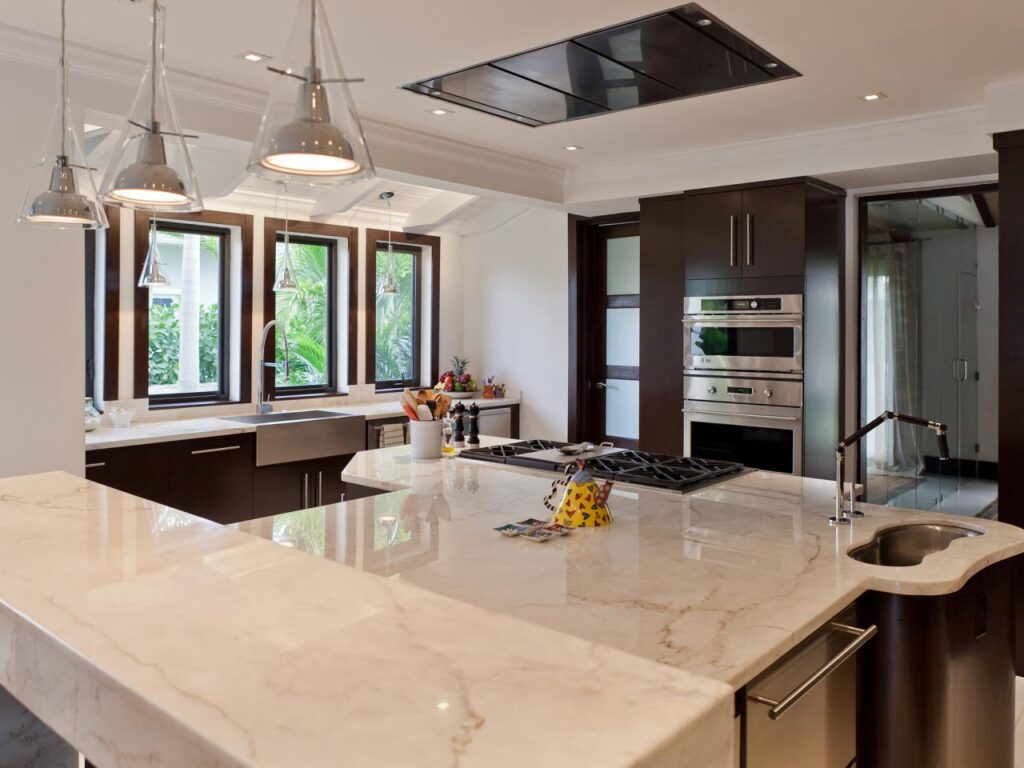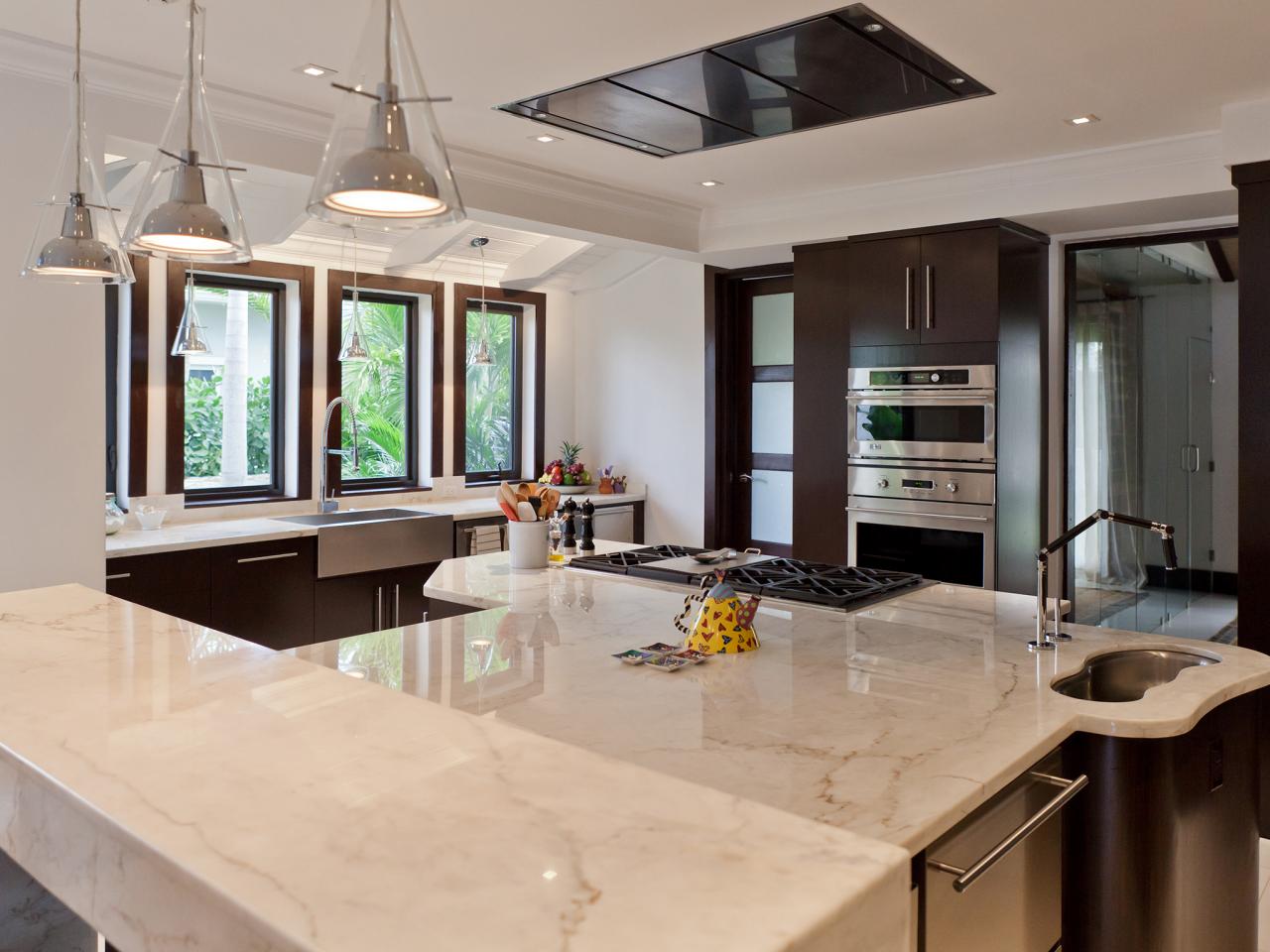
Choosing the Best Marble for Kitchen Countertops: A Comprehensive Guide
Selecting the perfect countertop material is a pivotal decision in any kitchen renovation or new build. Among the many options available, marble stands out for its timeless elegance and luxurious appeal. However, not all marble is created equal, and choosing the best marble for kitchen countertops requires careful consideration. This comprehensive guide delves into the various types of marble, their characteristics, suitability for kitchen use, and essential factors to consider before making your investment. We aim to provide you with the expert knowledge needed to confidently select a marble countertop that enhances your kitchen’s beauty and functionality for years to come.
Understanding Marble: More Than Just a Pretty Stone
Marble, a metamorphic rock resulting from the transformation of limestone or dolomite under intense heat and pressure, has been prized for centuries for its beauty and durability. Its characteristic veining, caused by mineral impurities, adds unique character to each slab. However, it’s crucial to understand that marble is a relatively soft and porous stone compared to granite or quartzite. This characteristic influences its suitability for high-use areas like kitchen countertops.
The Composition and Characteristics of Marble
Marble is primarily composed of calcium carbonate (CaCO3), which makes it susceptible to etching from acidic substances like lemon juice, vinegar, and certain cleaning products. The porosity of marble also means it can absorb liquids, leading to staining if spills are not promptly cleaned. However, proper sealing and diligent maintenance can mitigate these issues.
Why Marble Remains a Popular Choice
Despite its vulnerabilities, marble continues to be a sought-after material for kitchen countertops due to its unparalleled aesthetic appeal. Its cool, smooth surface is ideal for pastry making, and its classic beauty complements a wide range of kitchen styles, from traditional to contemporary. Furthermore, the unique veining patterns in each slab ensure that no two marble countertops are exactly alike, adding a touch of exclusivity to your kitchen.
Exploring Different Types of Marble for Kitchen Countertops
The term “marble” encompasses a wide variety of stone types, each with its own unique appearance and characteristics. Understanding these differences is crucial when selecting the best marble for kitchen countertops.
Carrara Marble: The Classic Choice
Carrara marble, quarried in Italy, is perhaps the most well-known and widely used type of marble. It typically features a soft white background with subtle, feathery gray veining. Carrara marble is a relatively affordable option, making it a popular choice for both residential and commercial applications. While it’s more porous than some other marbles, proper sealing can help protect it from staining and etching.
Calacatta Marble: Luxury and Elegance
Calacatta marble is considered a premium variety of marble, prized for its bright white background and bold, dramatic veining. The veins are typically thicker and more pronounced than those found in Carrara marble, often featuring gold or gray hues. Calacatta marble is more expensive than Carrara due to its rarity and striking appearance. It exudes luxury and is often used as a statement piece in high-end kitchens.
Statuario Marble: The Epitome of White Marble
Statuario marble, also quarried in Italy, is another highly sought-after variety known for its pure white background and minimal veining. It is often used for sculptures and other artistic applications due to its pristine appearance. Statuario marble is among the most expensive types of marble, reflecting its rarity and exceptional beauty. It’s an excellent choice for those seeking a clean, minimalist aesthetic in their kitchen.
Other Notable Marble Varieties
- Danby Marble: A Vermont-quarried marble known for its durability and resistance to staining.
- Fantasy Brown Marble (Actually a Dolomite): Often mislabeled as marble, this stone is more durable and stain-resistant than true marble.
- Nero Marquina Marble: A striking black marble with white veining, ideal for creating a dramatic contrast.
Factors to Consider When Choosing Marble for Your Kitchen
Selecting the best marble for kitchen countertops involves more than just choosing a visually appealing slab. Several factors can impact the long-term performance and maintenance of your marble countertop.
Porosity and Stain Resistance
As mentioned earlier, marble is a porous material, making it susceptible to staining. Lighter-colored marbles tend to show stains more readily than darker varieties. Opting for a denser marble and applying a high-quality sealant can help minimize staining. Regular cleaning and prompt spill removal are also crucial for maintaining the beauty of your marble countertop.
Etching and Scratch Resistance
Marble is also prone to etching, which occurs when acidic substances react with the calcium carbonate in the stone. Etches appear as dull spots or rings on the surface of the marble. While etching cannot be completely prevented, it can be minimized by avoiding contact with acidic substances and using pH-neutral cleaning products. Marble is also softer than materials like granite, and therefore more susceptible to scratches. Using cutting boards and trivets can help prevent scratches.
Sealing and Maintenance
Sealing is an essential step in protecting your marble countertop from staining and etching. A high-quality sealant creates a barrier that prevents liquids from penetrating the surface of the stone. The frequency of sealing depends on the type of marble and the sealant used, but typically, marble countertops should be sealed every 6-12 months. Regular cleaning with a pH-neutral cleaner is also crucial for maintaining the beauty of your marble countertop. Avoid using abrasive cleaners or scouring pads, as these can damage the surface of the stone.
Cost and Budget
The cost of marble countertops can vary widely depending on the type of marble, the thickness of the slab, and the complexity of the installation. Carrara marble is generally the most affordable option, while Calacatta and Statuario marbles are among the most expensive. It’s essential to factor in the cost of sealing and maintenance when budgeting for marble countertops. While marble may require more upkeep than other materials, its timeless beauty and luxurious appeal make it a worthwhile investment for many homeowners.
Comparing Marble to Other Countertop Materials
When choosing a countertop material, it’s essential to consider the pros and cons of marble compared to other popular options, such as granite, quartz, and solid surface materials. Each material has its own unique characteristics and suitability for different lifestyles and budgets.
Marble vs. Granite
Granite is a natural stone that is known for its durability and resistance to staining and scratching. It is generally more expensive than Carrara marble but less expensive than Calacatta or Statuario. Granite requires less maintenance than marble, as it is less porous and less prone to etching. However, granite lacks the elegant veining and sophisticated appearance of marble. In our experience, homeowners who prioritize durability and low maintenance often choose granite, while those who value aesthetics and are willing to invest in upkeep often prefer marble.
Marble vs. Quartz
Quartz is an engineered stone made from crushed quartz and resin. It is highly durable, non-porous, and resistant to staining and scratching. Quartz countertops require virtually no maintenance and come in a wide range of colors and patterns. However, quartz lacks the natural beauty and unique character of marble. Additionally, some quartz patterns can appear artificial or manufactured. Experts in kitchen design often recommend quartz for busy families who want a low-maintenance countertop option.
Marble vs. Solid Surface
Solid surface materials, such as Corian, are synthetic materials made from acrylic or polyester resins. They are non-porous, seamless, and easy to clean. Solid surface countertops are also relatively affordable. However, they are less durable than marble or granite and can be susceptible to scratching and heat damage. Solid surface materials also lack the natural beauty and luxurious appeal of marble. Our testing shows that solid surface materials are a good option for budget-conscious homeowners who want a low-maintenance countertop but are willing to sacrifice some durability and aesthetics.
Marble Countertop Finishes: Honed vs. Polished
The finish of your marble countertop can significantly impact its appearance and performance. The two most common finishes are honed and polished.
Honed Marble
Honed marble has a matte finish that is achieved by grinding the surface of the stone without polishing it. This finish gives the marble a softer, more natural look. Honed marble is less reflective than polished marble, which can help to hide imperfections and etching. However, honed marble is more porous than polished marble and may require more frequent sealing. A common pitfall we’ve observed is homeowners not realizing the increased maintenance required for honed marble.
Polished Marble
Polished marble has a glossy, reflective finish that is achieved by grinding and polishing the surface of the stone. This finish gives the marble a more luxurious and elegant look. Polished marble is less porous than honed marble and is easier to clean. However, polished marble is more likely to show scratches and etching. Leading experts in marble restoration often recommend polished finishes for low traffic kitchens where spills are cleaned quickly.
Professional Installation: Ensuring a Flawless Result
Proper installation is crucial for the long-term performance and appearance of your marble countertop. It is highly recommended to hire a professional installer who has experience working with marble. A skilled installer will ensure that the countertop is properly supported, leveled, and sealed. They will also be able to handle any challenges that may arise during the installation process, such as cutting the marble to fit around sinks and appliances. While DIY installation may seem tempting, the risk of damaging the marble and voiding the warranty is generally not worth the cost savings.
Maintaining Your Marble Countertop: A Long-Term Investment
Investing in best marble for kitchen countertops is a commitment to regular maintenance. With proper care, your marble countertop can retain its beauty and elegance for many years.
Daily Cleaning
Wipe up spills immediately with a soft cloth. Use a pH-neutral cleaner specifically designed for natural stone. Avoid using abrasive cleaners, scouring pads, or acidic substances.
Sealing
Seal your marble countertop every 6-12 months, or as recommended by the sealant manufacturer. This will help to protect it from staining and etching.
Preventative Measures
Use cutting boards and trivets to protect the surface of the marble from scratches and heat damage. Avoid placing hot pots and pans directly on the countertop. Use coasters under glasses to prevent water rings.
Transforming Your Kitchen with Marble: A Timeless Choice
Choosing the best marble for kitchen countertops involves careful consideration of various factors, including the type of marble, its porosity, maintenance requirements, and cost. While marble requires more upkeep than some other countertop materials, its timeless beauty and luxurious appeal make it a worthwhile investment for many homeowners. By understanding the characteristics of different marble varieties and following proper maintenance procedures, you can enjoy the elegance of marble in your kitchen for years to come. The unique veining patterns and cool, smooth surface of marble create a sophisticated and inviting space that enhances the overall value and enjoyment of your home. Whether you choose the classic elegance of Carrara, the bold drama of Calacatta, or the pristine beauty of Statuario, a marble countertop is sure to become a focal point of your kitchen.

